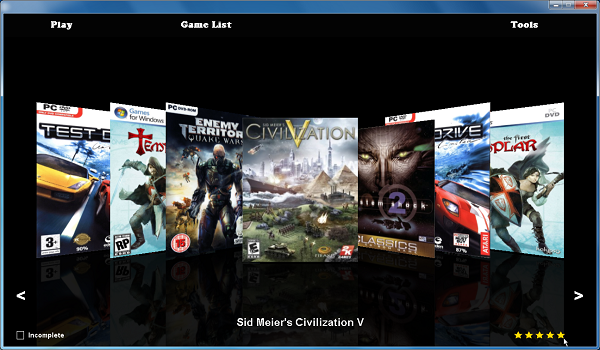
In the world according to Microsoft, the Windows Games Explorer should provide everything you need to organize, update and manage your favorite games. And it’s not too bad: with a little work you can get a display that includes game information, ratings, cover art and more.
If Game Explorer just isn’t powerful enough for your needs, though, you might find the free Game Manager useful. It also provides a database of games that you can organize and view in several ways, but can do this via a Media Center-style full-screen interface, and includes plenty of extra functionality as well.
The program downloads cover and box art, both front and back, for instance -- right-click with the mouse and you can toggle between the two, clicking to zoom in on the details.
If you use DAEMON Tools or Alcohol 120 percent to maintain images of your game discs, then you’ll appreciate Game Manager’s ability to automatically mount them before running a game, and remove them when you’ve finished.
And the program can also display your game collection in various ways, take screen grabs while you play, or maintain your games by downloading and installing official patches.
While all this looks great, we found Games Manager to be less than intuitive. And the initial configuration process proved particularly tricky. The program can try to locate your installed games, for instance, but don’t expect great results (it thought that an empty C:\My Works folder was home to Enemy Territory: Quake Wars, for instance). Our first efforts to manually add games weren’t much more successful, and other areas of the program similarly didn’t work quite as we expected.
Still, checking out Game Manager’s online help generally provided an answer for most things, and once you’ve managed to import your games, and learned how to browse around your database, then the program worked reasonably well. So if you’re looking for a way to keep a large game collection in order, then Game Manager may be useful -- just expect to spend a little time figuring out how everything operates before you get the full benefit of the program’s functionality.

